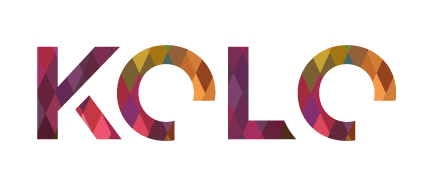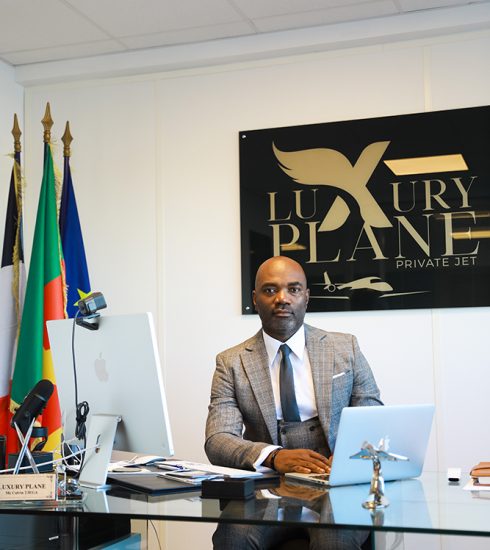Selma Ndi, Data Girl Technologies (DGT)
A Vision Unchanged, Only Enhanced

With an accounting degree and an MBA, Selma Ndi quit a lucrative career in accounting to follow her passion in coding. Her journey has taken her from Cameroon to United States of America to learn from the best minds in Silicon Valley, California. She is passionate in empowering women in technology. This passion has led her to train over 3000 women. She now offers pre-financing options for women to take the program without the pressure of paying. Payment is due only after completion and they get a job. Her hiring platform showcases female developers all over Africa.
KM: What skills are learned by the women participating in your program?
DGT: We offer a 3-month Full-Stack Web development boot camp. We teach the basics of coding, front-end, back-end, and version control. Students develop and present projects and then commit their code to Github. The program ends with a graduation ceremony.
KM: Your program started in the Northwest, and you moved to the Southwest, Why?
DGT: It was difficult to operate in Bamenda due to instances of two or more weeks of lockdown, making learning a challenge. Students who missed classes felt discouraged and dropped out of the program. Productivity was low, and we were unable to run boot camps. Consequently, we moved the program to Limbe and Buea, where we have been operating in fairly stable conditions.
KM: You represented Cameroon in Tech Women Mentorship Program in Silicon Valley, CA, USA. Please share with us your experience and how it shaped your professional goals.
DGT: I networked and learned how big corporations make decisions, big startup projects, and roll out versions of their software. I met the CEO of Twitter, visited the Meta (Facebook) and Google offices, and listened to renowned tech stakeholders speak.
The program aims to empower women in the technology sector and bring diversity into the workforce. DGT is a microcosm of Twitter. We are fostering the next generation of workforce talents. JavaScript Coding is the same in US, Asia, and Africa. It is a matter of skills, not location. This experience made me revise our business model; we now train women to work with teams, version control and build projects remotely.
KM: Why were you selected to participate in this “Tech Women” initiative?
DGT: This annual initiative by the US State Department assembles top women in technology from Africa, the Middle East, and Asia to learn from the best minds in technology. These women take back what they have learned and implement it in their local communities. I was selected due to my track record with DGT in the tech space and our ability to empower over 3000 women in the tech ecosystem.
KM: How do your male colleagues perceive you as a woman in a profession dominated by men?
DGT: My biggest challenge is the lack of respect. Some male colleagues believe women do not have a role in technology, making decisions without considering a woman’s perspective. They feel empowering women in technology is a waste of time. Their tone is demeaning and condescending. However, I do not let such voices drown my confidence. When I am in a forum, I make sure I am heard and provide valuable input. I no longer feel intimidated.


“When I get compliments on projects or applications, I save them and later use them to light up the fire in me when I come across negative voices. That’s how I stay focused, motivated and successful”.
KM: How can these stereotypes be changed to let in female professionals in making decisions?
DGT: There are awareness programs empowering women to break the glass ceiling. There need to be awareness programs for men to understand there are intelligent women in technology who can add significant value if given a chance to contribute.
KM: What measures can be taken to fast-track Cameroon to become a leader in the African Tech space?
DGT: Efficient and impactful policy implementation is important. Tech communities and associations need to collaborate and work towards a greater goal. We need continuous awareness through national conferences to showcase our expertise. In the past, the government gave laptops to students and, recently, free modems to start-ups with an annual subscription. More can be done locally by governors and mayors to generate awareness in the tech sector.
KM: As a woman in technology, what keeps you up at night?
DGT: I would like women to be at the forefront of technology. The narrative needs to change. In the USA, only 8% of women are software developers, and far less in fields such as Artificial Intelligence (AI). I would like to see every woman who wants to pursue a career in technology have all the resources needed to achieve their goals.
KM: Who are the people who have inspired you in technology?
DGT: Madame Horore Bebga and Madame Sophie Ngassa mentored and counseled me at the onset of my career and, recently, Madame Rebecca Enonchong. My sister has consistently encouraged me to pursue my dreams. These support systems have driven me to become the person I am.
KM: What can we expect from DGT in the next five years?
DGT: We plan to become a full academy offering Coding, Artificial Intelligence, Cybersecurity, Machine Learning, Blockchain, and Robotics courses. We want our students to be competitive globally.

 Download
Download 















